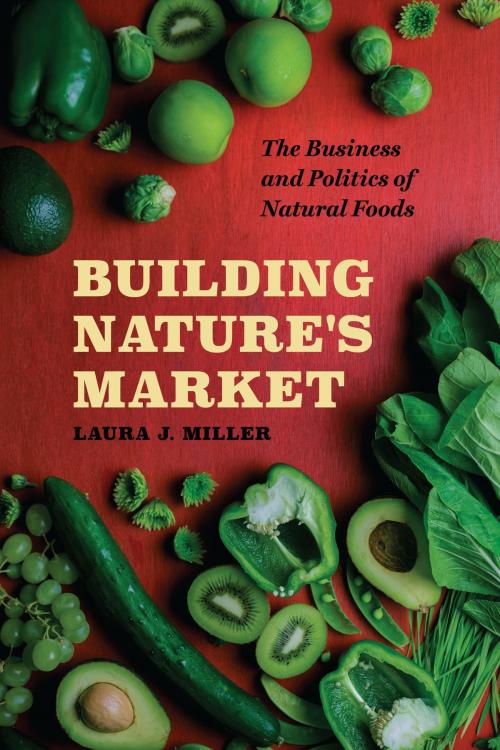Building Nature's Market
The Business and Politics of Natural Foods
Nonfiction, Food & Drink, Healthy Cooking, Social & Cultural Studies, Social Science, Sociology| Author: | Laura J. Miller | ISBN: | 9780226501406 |
| Publisher: | University of Chicago Press | Publication: | November 22, 2017 |
| Imprint: | University of Chicago Press | Language: | English |
| Author: | Laura J. Miller |
| ISBN: | 9780226501406 |
| Publisher: | University of Chicago Press |
| Publication: | November 22, 2017 |
| Imprint: | University of Chicago Press |
| Language: | English |
For the first 150 years of their existence, “natural foods” were consumed primarily by body builders, hippies, religious sects, and believers in nature cure. And those consumers were dismissed by the medical establishment and food producers as kooks, faddists, and dangerous quacks. In the 1980s, broader support for natural foods took hold and the past fifteen years have seen an explosion—everything from healthy-eating superstores to mainstream institutions like hospitals, schools, and workplace cafeterias advertising their fresh-from-the-garden ingredients.
Building Nature’s Market shows how the meaning of natural foods was transformed as they changed from a culturally marginal, religiously inspired set of ideas and practices valorizing asceticism to a bohemian lifestyle to a mainstream consumer choice. Laura J. Miller argues that the key to understanding this transformation is to recognize the leadership of the natural foods industry. Rather than a simple tale of cooptation by market forces, Miller contends the participation of business interests encouraged the natural foods movement to be guided by a radical skepticism of established cultural authority. She challenges assumptions that private enterprise is always aligned with social elites, instead arguing that profit-minded entities can make common cause with and even lead citizens in advocating for broad-based social and cultural change.
For the first 150 years of their existence, “natural foods” were consumed primarily by body builders, hippies, religious sects, and believers in nature cure. And those consumers were dismissed by the medical establishment and food producers as kooks, faddists, and dangerous quacks. In the 1980s, broader support for natural foods took hold and the past fifteen years have seen an explosion—everything from healthy-eating superstores to mainstream institutions like hospitals, schools, and workplace cafeterias advertising their fresh-from-the-garden ingredients.
Building Nature’s Market shows how the meaning of natural foods was transformed as they changed from a culturally marginal, religiously inspired set of ideas and practices valorizing asceticism to a bohemian lifestyle to a mainstream consumer choice. Laura J. Miller argues that the key to understanding this transformation is to recognize the leadership of the natural foods industry. Rather than a simple tale of cooptation by market forces, Miller contends the participation of business interests encouraged the natural foods movement to be guided by a radical skepticism of established cultural authority. She challenges assumptions that private enterprise is always aligned with social elites, instead arguing that profit-minded entities can make common cause with and even lead citizens in advocating for broad-based social and cultural change.















